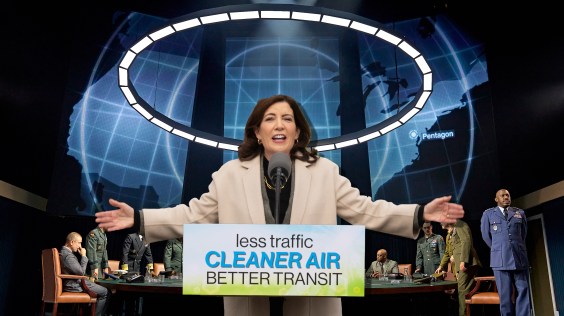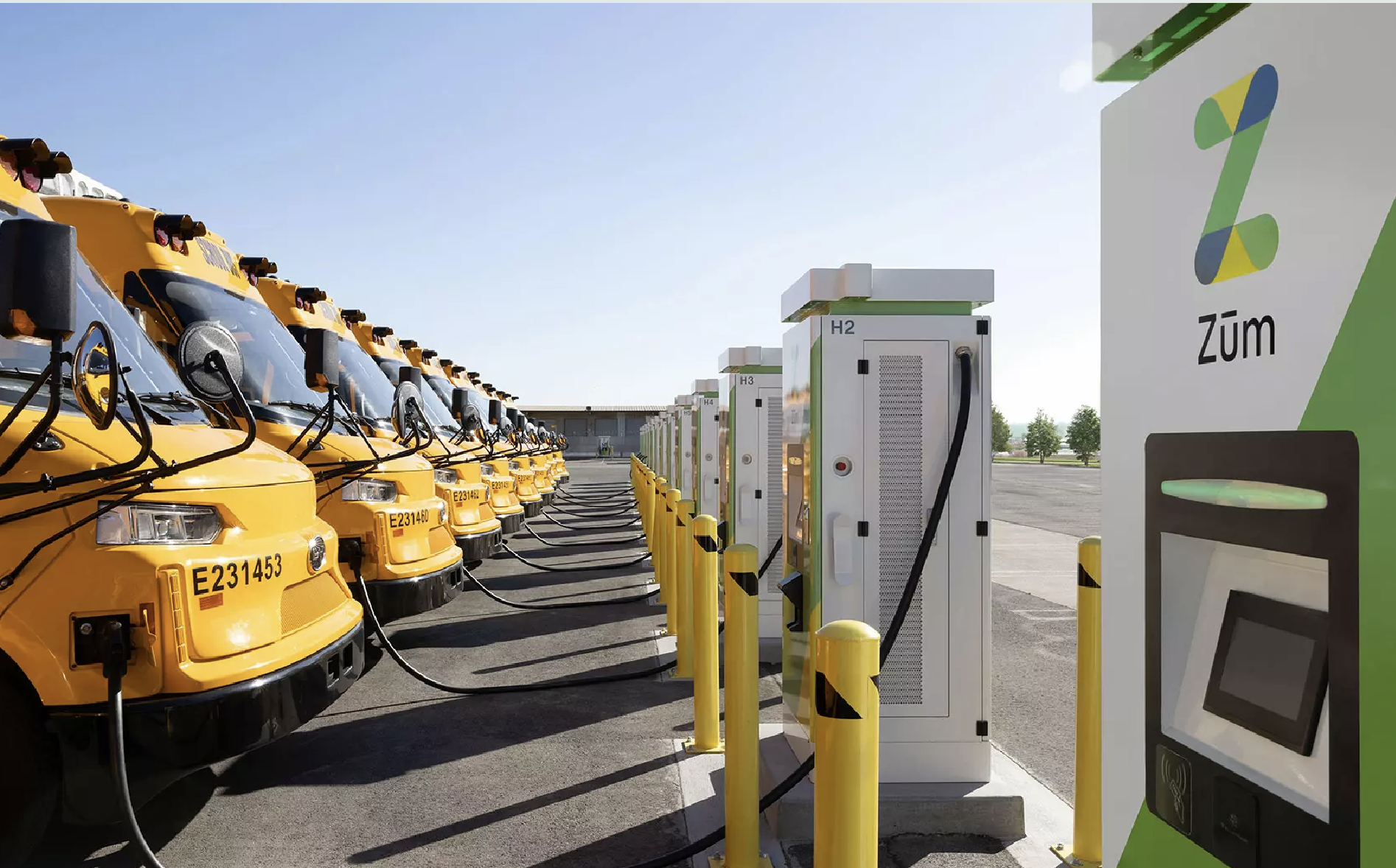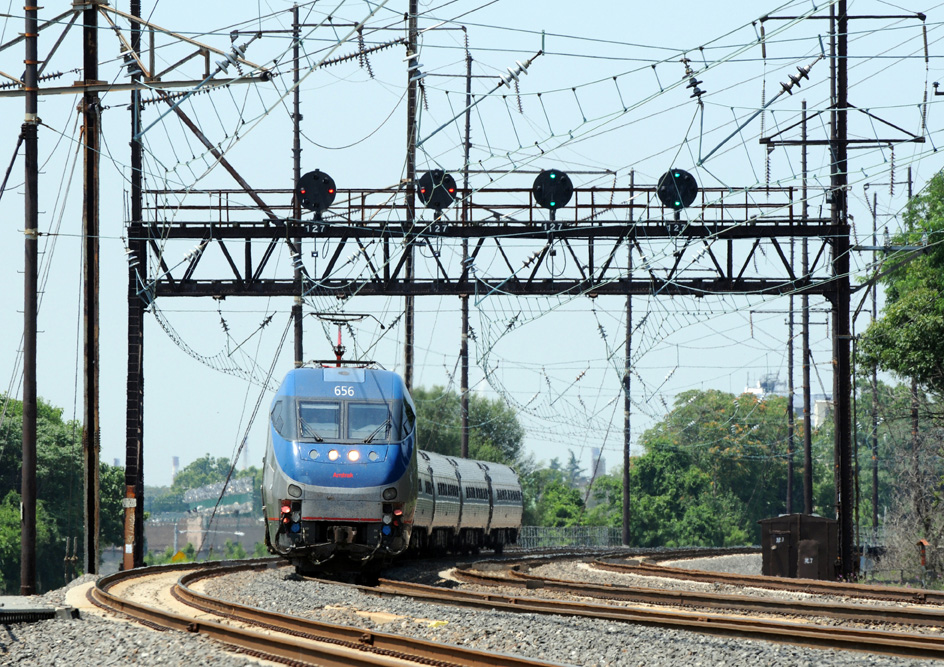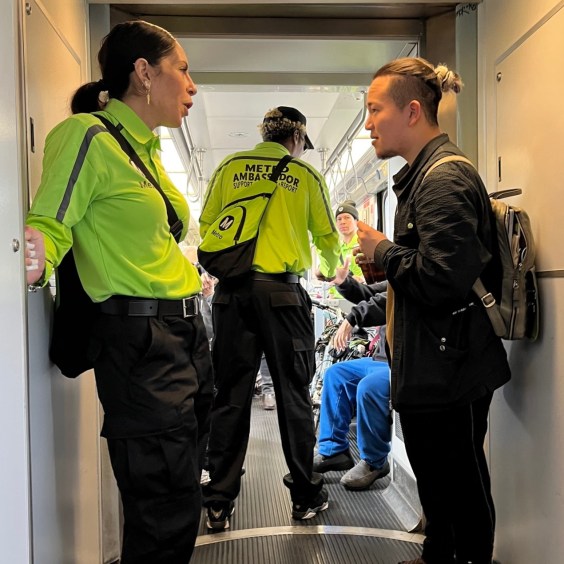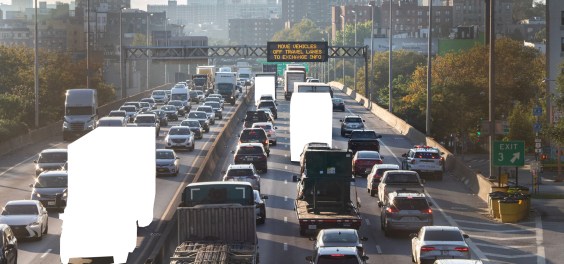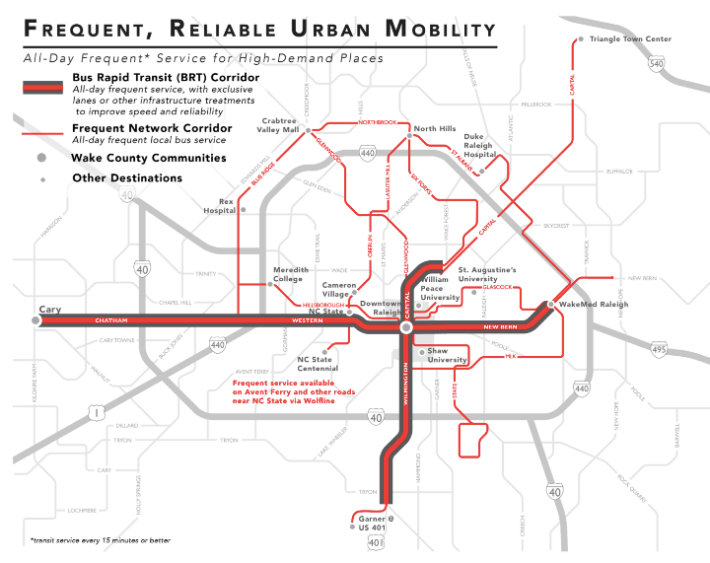
We continue our overview of what’s at stake in the big transit ballot initiatives this November with a look at Wake County, North Carolina. Previous installments in this series examined Indianapolis, Seattle, Detroit, and Atlanta.
Ask Wake County Commissioner Sig Hutchinson how Raleigh's transit system is currently functioning, and he doesn't sugarcoat it.
"I just really don’t think we’ve got a functional transit system now," says Hutchinson. "It’s definitely not something you can rely on for people to get to work."
The booming Raleigh area has only 17 miles of bus routes where buses run at least every 15 minutes. There's no high-capacity service like rail or BRT. And if you need to take the bus somewhere on a Sunday, good luck.
Voters have a chance to change that next Tuesday. On the ballot in Wake County is a measure to raise $2.3 billion over 10 years to improve and expand the transit system, via a half-cent sales tax and a $10 increase in vehicle registration fees. The package would enable the region to quadruple the extent of frequent local bus service, build 20 additional miles of frequent-running BRT routes with dedicated bus lanes and off-board fare collection, and construct a 37-mile commuter rail connection to Durham.
Durham and Chapel Hill, Raleigh's neighbors in the "Research Triangle," have already passed half-cent transit sales taxes to fund transit connections between the three cities. Raleigh is the missing link.
In 2014, Hutchinson was one of four new county commissioners elected on a pro-transit platform. The team made the vote a referendum on the Republican-controlled commission, which had refused to move the transit measure to the ballot. In their campaign, the four candidates warned that Raleigh could end up "like Atlanta," -- congested, sprawling -- without transit investment.
The message resonated. Hutchinson and his slate ousted the anti-transit commissioners in a landslide, making way for the transit measure.
"Wake County’s a million people, the region’s about 2.5 million," said Hutchinson. "We’re going to double in size again in the next 30, 35 years. Everyone’s recognizing that congestion’s getting worse and we need more options."
According to Hutchinson, one of the biggest benefits of the transit plan is that it will help organize the region's rapid growth around walkable, transit-accessible locations. About 63 new residents move to Wake County every day. Right now, they mostly move to sprawl.
A "Yes" vote on Tuesday will open up opportunities for new types of transit-oriented housing. The transit expansion would bring 50 percent of residents and 70 percent of jobs in Wake County within a half mile of a bus or rail stop of any type, according to the Moving Wake Forward campaign. If the measure passes, the region is going to develop a joint land-use and transportation plan to make the most of its investment.
The measure has the support of the Raleigh Chamber of Commerce, all 12 municipalities in the county, and a coalition of interests, from the association of realtors, to disability advocates, to the Raleigh News & Observer.
